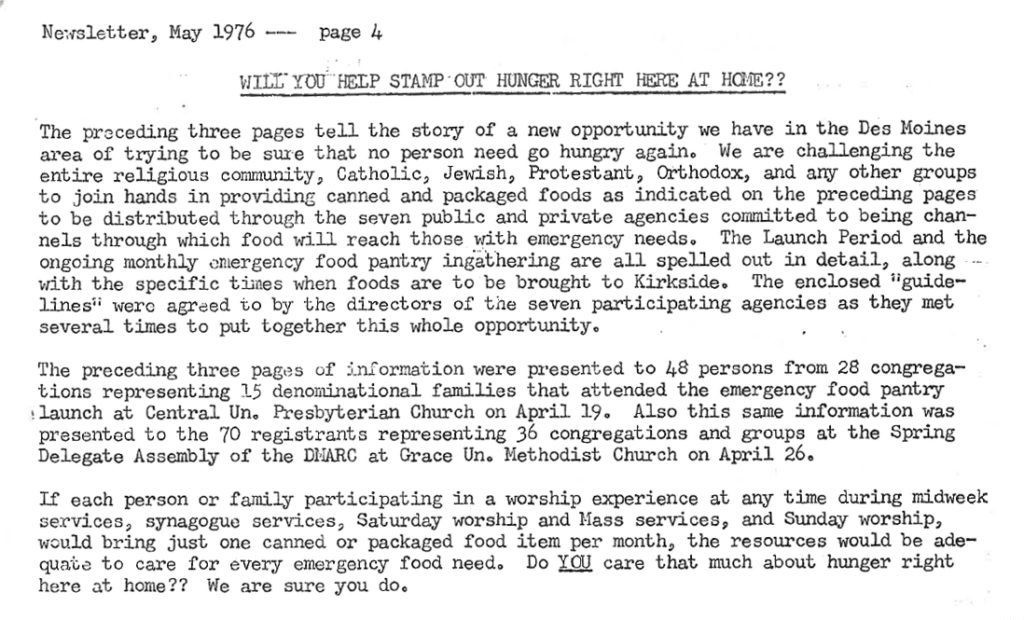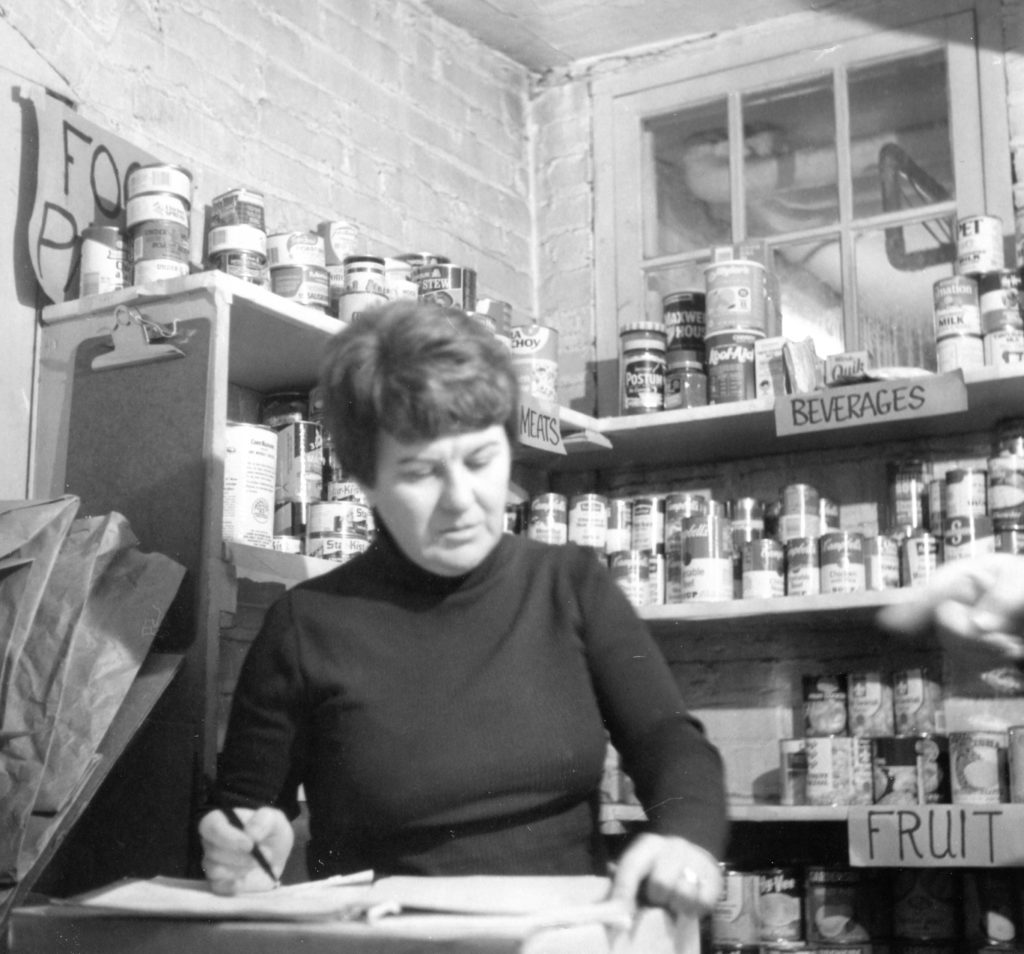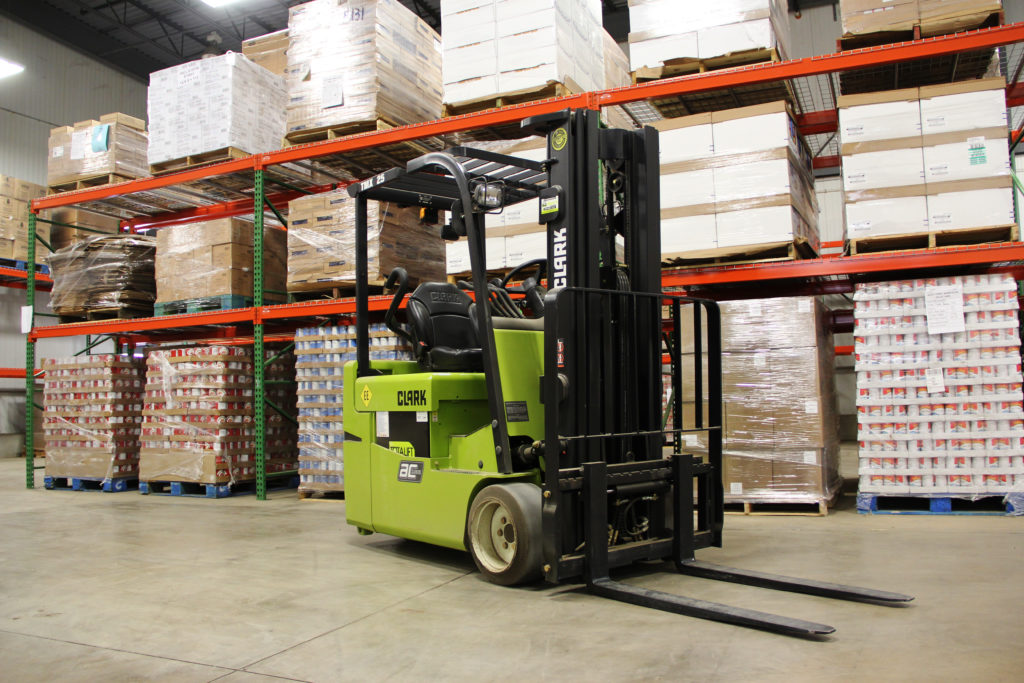Commemorating 45 Years of the DMARC Food Pantry Network
What started in a church basement has grown to become the largest Food Pantry Network in the state of Iowa. At its inception, the DMARC Food Pantry Network consisted of seven partner food pantries, and over the years has expanded to our current network of 14 partner pantries and over 30 mobile food pantry sites.
Whenever our community has faced a crisis, DMARC has stayed flexible and risen to the challenge to provide food in innovative new ways, from the gas crisis of the 1980’s, to the flood of 1993, to the Great Recession, and most recently, the COVID-19 pandemic. Food insecurity does not only exist during these crises, however, and we have seen the need for food pantries steadily rise even in times of “plenty.”
We have adapted our food supply to focus on providing healthier food options, more culturally appropriate foods, and have increased the amount of fresh fruits and vegetables distributed throughout our network. We have diversified our sources of food and increased the amount of food rescue and recovery efforts.
We have also found creative new ways to get food to people who need it in an equitable way throughout our community. In the past five years, DMARC has added two mobile food pantries to our fleet of vehicles, rolled out a “Refuel Station” mobile pantry that is specifically designed to cater to children, and launched a food pantry delivery service to bring food directly to the homes of people who face transportation barriers.
But we know that simply providing more food to more people in more places will not solve hunger and food insecurity in our community. We must also strike at the root causes of hunger and poverty and advocate for systemic change if we truly want to end hunger in Greater Des Moines.
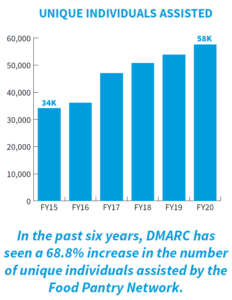 That is why we advocate with our elected officials and community leaders to not only support important public assistance programs like the Supplemental Nutrition Assistance Program (SNAP), known in Iowa as Food Assistance, but also advocate on intersecting issues that directly relate to food insecurity, such as affordable housing, higher wages, and access to child care.
That is why we advocate with our elected officials and community leaders to not only support important public assistance programs like the Supplemental Nutrition Assistance Program (SNAP), known in Iowa as Food Assistance, but also advocate on intersecting issues that directly relate to food insecurity, such as affordable housing, higher wages, and access to child care.
As we look to the future, we are already running out of space for food and staff at our current facility at 1435 Mulberry Street, and a move to a larger space is on the horizon for DMARC. The DMARC Food Pantry Network continues to explore innovative solutions to meet rising levels of food insecurity while also advocating for systemic change in our community.
These past 45 years have seen their fair share of challenges, but with your help, the DMARC Food Pantry Network has been there to meet the needs of people facing hunger and food insecurity in Greater Des Moines. The fight to end hunger is far from over, but we are not alone in this endeavor.
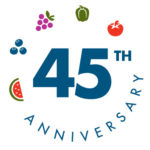 Through it all, you have shown that we can count on you to help us fulfill this mission. We thank our faith community partners, partner food pantries, mobile pantry host sites, volunteers, donors, DMARC board members and employees past and present, and the entire community of Greater Des Moines. We feel truly grateful to call such a giving, generous community home.
Through it all, you have shown that we can count on you to help us fulfill this mission. We thank our faith community partners, partner food pantries, mobile pantry host sites, volunteers, donors, DMARC board members and employees past and present, and the entire community of Greater Des Moines. We feel truly grateful to call such a giving, generous community home.
Do you have a memory of the DMARC Food Pantry Network you’d like to share with us? Contact us at info@dmarcunited.org or (515) 277-6969 – we’d love to hear from you!
A History of the DMARC Food Pantry Network
- Under recommendation from DMARC’s Department of CROP and Other Human Needs, the “Emergency Food Pantry” resolution was adopted by DMARC’s Administrative Cabinet on February 17, 1976.
- DMARC announced the Emergency Food Pantry Launch Week, held May 10-16, 1976. Congregations and community members were encouraged to donate food items to the Emergency Food Pantry.
- In December 1982, the Department of the Emergency Food Pantry was formed within DMARC, with Earl Holst selected as its first chairman.
- In the summer of 1986, DMARC moved headquarters to 3816 36th Street. With the help of local Kiwanis clubs, DMARC built its first food warehouse and hired its first pantry director, Charles Schachterle.
- The Red Barrel program was launched in April 1990. Kiwanis clubs of Des Moines again played a vital role in starting this program.
- Ray Hock and Fran Bobzin both served as Food Pantry Directors in the years of 1990-1992, with Charles Ryan taking the position in September 1992.
- The flood of 1993 was a true test for DMARC’s Emergency Food Pantry. Hundreds of residents were suddenly left homeless, with no access to food. DMARC saw food resources pour in from across the nation, and the pantry distribution system passed its most rigorous test it had ever faced. In the year of 1993, DMARC served a total of 95,448 individuals- more than the pantry system would assist for another 10 years.
- Charles Ryan resigned as Food Pantry Director in 1995, with Sister Sandra Rodemyer taking over. To this day, many individuals share fond memories of volunteering in the food pantry warehouse with “Sister Sandy.”
- Sr. Sandy Rodemyer retired at the end of 2007, and was followed by Jim Trotter, who served as Food Pantry Director from 2007-2010.
- In 2008, DMARC’s Emergency Food Pantry was renamed as the DMARC Food Pantry Network. The system had always existed as a network of pantries, and the new name aimed to be more reflective of this.
- Elisabeth Ballstad began as Food Pantry Director in 2010, the same year DMARC purchased a van to haul food. Prior to this, transportation for food was provided entirely by
volunteers and other organizations. - In 2011, the MovetheFood initiative was launched to address the entire food system in Des Moines. Two large trucks were purchased to aid in this effort.
- Also in 2011, after a study conducted by Iowa State found that pantry visitors were three times as likely to have diabetes than the general population, DMARC adopted a healthy foods guideline for its monthly food box, featuring food items lower in sugar, fat and salt, as well as fresh fruits and vegetables.
- Rebecca Whitlow took over as Food Pantry Network Director in 2012, and still serves in that role today.
- In January 2014, following a successful capital campaign, DMARC moved into its current home at 1435 Mulberry Street.
- Thanks to help from Hunger Free Polk County, DMARC added additional warehouse space on Scott Street in January 2016.
- DMARC launched its Mobile Food Pantry in July 2016.
- After winning the Ignite Community Innovation Award in December 2016, DMARC launched the Food Pantry 2.0 pilot project in the summer of 2017.
- In fall 2017, DMARC unveiled its data visualization dashboard to help share the realities of food insecurity in our community with faith communities, nonprofit partners, elected officials, and others.
- DMARC acquired a second Mobile Food Pantry and Refuel Station in October 2018, thanks to generous contributions from Hunger Free Polk County, Charlotte and Fred Hubbell, Suzie Glazer Burt, and Variety the Children’s Charity.
- In April 2020, DMARC launched a food pantry delivery service to better assist people with transportation barriers during the COVID-19 pandemic.

